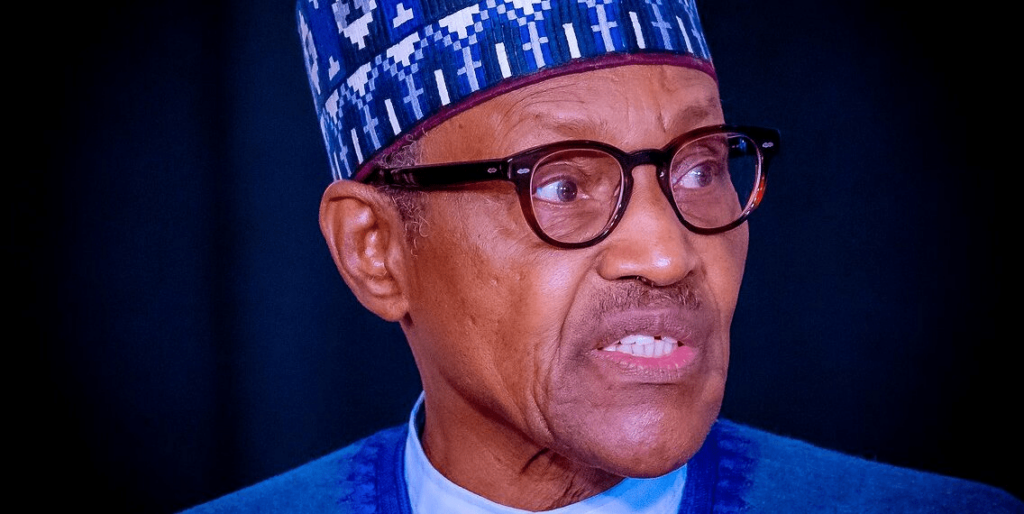When former President Muhammadu Buhari passed away, Nigeria lost not just a former head of state, but also a political phenomenon whose personal brand shaped the nation’s politics for nearly two decades. Buhari was not merely a politician, he was a movement; a man whose name alone could galvanise millions of votes across the Northern part of the country.
The question that now looms large over Nigeria’s political landscape is this: who will inherit Buhari’s fabled 12 million loyal voters?
Buhari’s journey to the presidency is the stuff of political legend. After ruling Nigeria as a military head of state in the early 1980s, he returned to the political scene in 2003 as a civilian candidate. He contested and lost presidential elections in 2003, 2007, and 2011; yet in each of those elections, he consistently polled around 12 million votes, largely from the core Northern states.
This unwavering support base came to be known as the “Buhari 12 million voters.” They were a mix of rural Northerners, low-income earners, religious conservatives, and those who saw him as the embodiment of integrity and discipline. When Buhari finally won the presidency in 2015 under the platform of the All Progressives Congress (APC), it was this bloc of voters that provided the foundation for his victory, tipping the scales in his favour against then-incumbent President Goodluck Jonathan.
Unlike many Nigerian politicians, Buhari’s appeal was not built solely on party structures or elite endorsements. His brand was personal; anchored on his reputation as a no-nonsense former general, his spartan lifestyle, and his image as an anti-corruption crusader.
Even when his government faced criticism over insecurity, the economy, and allegations of nepotism, a core section of his base remained loyal. This loyalty was partly cultural, partly religious, and partly a deep-seated belief that Buhari represented their interests better than any other candidate.
Now that Buhari is gone, the battle for the hearts of his loyal 12 million voters has begun. Several political figures are positioning themselves as his rightful political heirs:
President Bola Ahmed Tinubu: As Buhari’s direct successor and political ally, Tinubu naturally stands to gain from Buhari’s base. His challenge, however, lies in convincing Northern grassroots voters that he represents the same moral uprightness and simplicity that Buhari symbolised.
Rabiu Musa Kwankwaso: The former Kano governor and leader of the Kwankwasiyya movement has strong grassroots support in Kano and other parts of the North. Kwankwaso could inherit part of Buhari’s base, especially if voters prioritise Northern solidarity over party affiliation.
Atiku Abubakar: The former vice president and perennial presidential candidate also has deep Northern roots. However, his elite image and history of switching political parties may limit his ability to fully attract Buhari’s populist base.
Emerging Northern Leaders: Younger Northern politicians, such as Senator Ali Ndume, Governor Babagana Zulum of Borno State, and former Kaduna governor Nasir El-Rufai, could gradually build credibility as defenders of Northern interests and attract Buhari’s former supporters over time.
The death of Buhari signals the end of an era, but not necessarily the end of his political movement. The Northern political bloc remains a decisive force in Nigerian politics, and whoever manages to consolidate Buhari’s loyal base will have a significant advantage in future elections; especially in 2027.
However, for any politician to truly inherit Buhari’s 12 million votes, they must not only speak to the North’s political aspirations but also address the urgent challenges Buhari himself struggled with: insecurity, poverty, unemployment, and the widening inequality between North and South.
Buhari’s passing has created a vacuum that no single politician may be able to fill immediately. His brand of politics was a rare combination of personal discipline, mass appeal, and a cult-like following that transcended party politics.
The battle to inherit his 12 million votes is not just about political arithmetic; it is about who can capture the trust, faith, and emotional connection that Buhari cultivated over decades. Nigeria’s 2027 elections may very well be the first real test of who can step into his shoes and carry forward his political legacy.
Buhari’s 12 million votes were a personal movement
Many analysts agree that Buhari’s consistent 12 million votes across three consecutive elections (2003, 2007, 2011) were tied more to his personal credibility than to party loyalty. This means his support base may not automatically transfer to any political figure or party — it has to be earned.
The bulk of Buhari’s votes came from the 19 Northern states, where he was seen as a symbol of justice and defender of the poor. His identity as a devout Muslim also contributed to the emotional connection with conservative Northern voters. This makes it likely that his successor — politically speaking — will have to come from the North or be deeply rooted in Northern grassroots networks.
Unlike many Nigerian politicians who rely on patronage networks, Buhari’s appeal was emotional. He was seen as austere, incorruptible, and relatable. This suggests that whoever wants to inherit his supporters must project similar integrity and simplicity rather than just offering political promises or financial inducements.
Without Buhari as a unifying figure, the 12 million votes could splinter among different political leaders such as Tinubu (by virtue of APC incumbency), Kwankwaso (by virtue of grassroots mobilisation), and Atiku (by virtue of party loyalty). This fragmentation could make Northern politics more competitive than in 2015 or 2019.
Some commentators argue that Buhari’s 12 million votes may no longer be a reliable bloc. With insecurity, economic hardship, and disillusionment during his tenure, some of his loyalists may have lost faith in the political system entirely, reducing turnout in future elections.
Another perspective is that Buhari’s legacy may survive if he anointed a successor before his passing; or if his associates (like former ministers, governors, and party leaders) rally behind a single candidate. If no clear heir emerges, the “Buhari bloc” might lose its potency.















